 TTSynth
VS
TTSynth
VS
 Speechson
Speechson
TTSynth
TTSynth is a sophisticated text-to-speech platform that transforms written content into natural-sounding audio across multiple languages. The service provides access to over 80 distinct voices, including region-specific accents from countries like the United States, United Kingdom, Australia, and Singapore.
The platform offers varying character limits for different voices, ranging from 600 to 50,000 characters, making it suitable for both short-form and long-form content conversion. With features like multi-emotion versions and unlimited usage options, TTSynth caters to diverse text-to-speech requirements while maintaining high-quality audio output.
Speechson
Speechson is an advanced text-to-speech platform that leverages artificial intelligence to convert written text into natural-sounding speech. The platform offers over 840 realistic voices across male and female options, spanning more than 135 languages and dialects, making it a versatile solution for global content creation.
The service provides comprehensive SSML functionality for controlling voice intonation, pronunciation, and speed, along with support for multiple audio formats including MP3, OGG, WAV, and WEBM. Users can access both standard and neural voices, with the latter powered by deep learning algorithms for enhanced natural speech synthesis.
Pricing
TTSynth Pricing
TTSynth offers Freemium pricing .
Speechson Pricing
Speechson offers Freemium pricing with plans starting from $9 per month .
Features
TTSynth
- Multi-Language Support: Over 40 languages available for translation
- Voice Variety: 80+ natural-sounding voices with different accents and emotions
- High Character Limit: Support for up to 50,000 characters in some voices
- MP3 Download: Easy download of generated audio in MP3 format
- Cross-Platform Accessibility: Use across multiple devices without installation
- Custom Voice Selection: Choose from male, female, and child voices
- Multi-Emotion Versions: Available for selected voices
- Real-Time Processing: Instant text-to-speech conversion
Speechson
- Voice Library: 840+ realistic voices across male and female options
- Language Support: Over 135 languages and dialects available
- Audio Formats: Multiple format support including MP3, OGG, WAV, and WEBM
- SSML Features: Complete control over voice intonation and pronunciation
- Voice Types: Both standard and neural voices powered by deep learning
- Easy Sharing: Simple download and sharing of generated audio content
Use Cases
TTSynth Use Cases
- Creating audiobooks and educational content
- Generating voiceovers for marketing videos
- Developing accessible content for visually impaired users
- Producing e-learning materials
- Creating content for multimedia presentations
- Supporting language learning and pronunciation
- Enhancing digital accessibility compliance
Speechson Use Cases
- Educational content creation
- E-learning material development
- Training video voiceovers
- Content localization
- YouTube video narration
- Accessibility solutions
FAQs
TTSynth FAQs
-
How secure is the data processed through the service?
The platform prioritizes data security, ensuring all text inputs and generated MP3 files are processed and stored with the highest levels of protection. -
What factors influence the quality of TTS MP3 files?
The quality is influenced by the selected voice, language, character count, and whether it's a standard or emotion-enabled version of the voice. -
Can the service be accessed on multiple devices?
Yes, the platform is accessible across multiple devices without requiring any downloads or installations.
Speechson FAQs
-
Is there any free text to speech?
Yes, Speechson offers a free plan with 5000 characters and access to standard voices. -
What is TTS?
TTS stands for Text-to-Speech, which is a technology that converts written text into speech. It is used in applications like voice assistants, automated telephone systems, and other text-to-speech services. -
How do text to speech programs work?
Text-to-speech programs use natural language processing (NLP) and speech synthesis to convert text to speech. The program parses text into individual words, converts them into phonetic representations, and creates a waveform that represents the sound of the words.
Uptime Monitor
Uptime Monitor
Average Uptime
98.91%
Average Response Time
190.63 ms
Last 30 Days
Uptime Monitor
Average Uptime
0%
Average Response Time
0 ms
Last 30 Days
TTSynth
Speechson
More Comparisons:
-
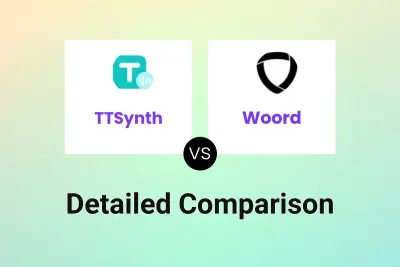
TTSynth vs Woord Detailed comparison features, price
ComparisonView details → -
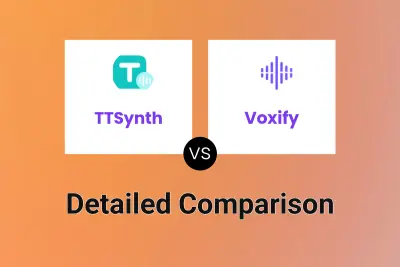
TTSynth vs Voxify Detailed comparison features, price
ComparisonView details → -
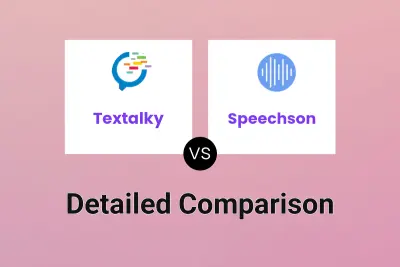
Textalky vs Speechson Detailed comparison features, price
ComparisonView details → -
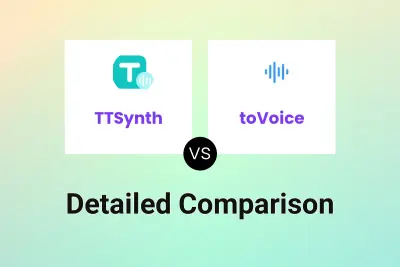
TTSynth vs toVoice Detailed comparison features, price
ComparisonView details → -
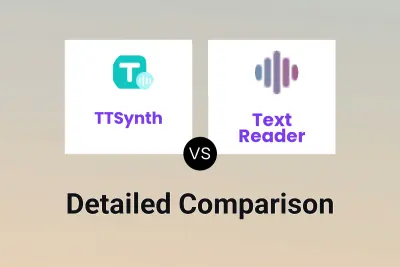
TTSynth vs Text Reader Detailed comparison features, price
ComparisonView details → -
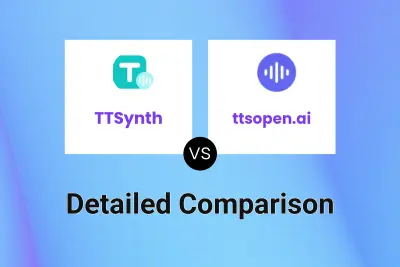
TTSynth vs ttsopen.ai Detailed comparison features, price
ComparisonView details → -
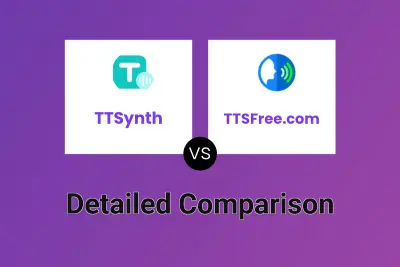
TTSynth vs TTSFree.com Detailed comparison features, price
ComparisonView details → -
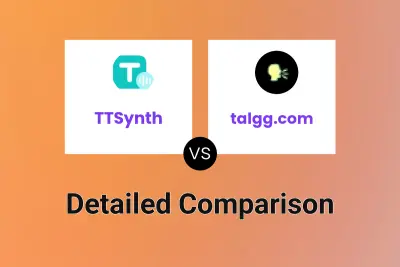
TTSynth vs talgg.com Detailed comparison features, price
ComparisonView details →
Didn't find tool you were looking for?